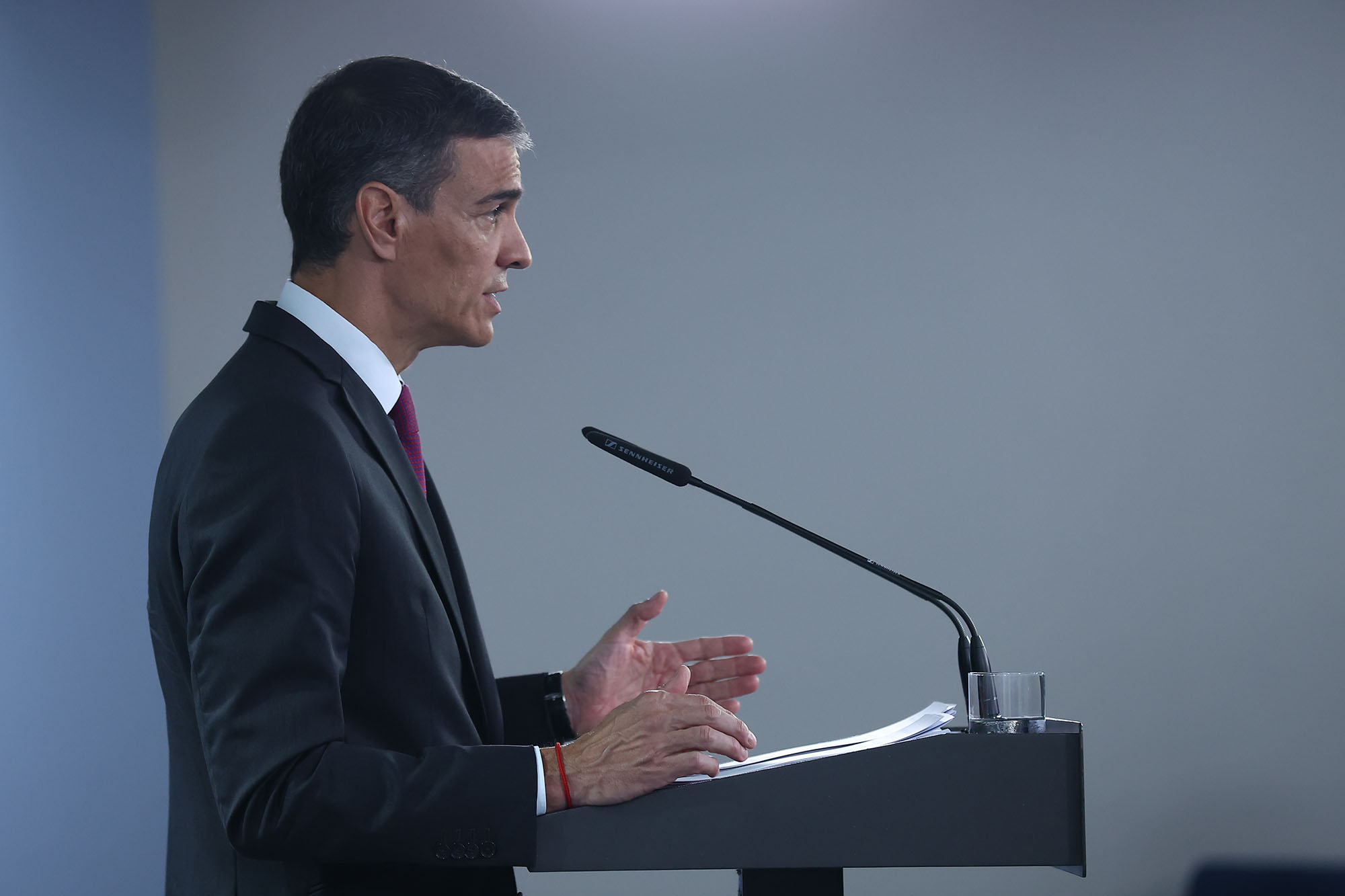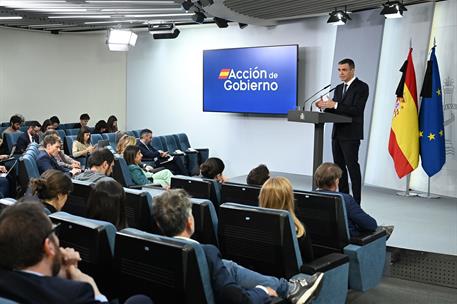Pedro Sánchez's speech following the agreement reached between Spain and NATO
Spain reaches agreement with NATO to allocate 2.1% of GDP to Defence
President's News - 2025.6.22
Moncloa Palace, Madrid
Pedro Sánchez appears to report on the agreement with NATO to allocate 2.1% of GDP to defense (Pool Moncloa/Fernando Calvo)
The President of the Government of Spain, Pedro Sánchez, has appeared from Moncloa Palace to give an account of the agreement reached between Spain and NATO that will allow Spain to fully comply with its commitments within the Alliance without the need to raise defence spending to 5% of GDP as had recently been proposed. Pedro Sánchez stressed that this agreement "is a success, because it will allow Spain to continue to be a leading global player, not only in the area of defence and security, but also in the economic and multilateral spheres," and detailed the reasons why Spain will not increase spending to that percentage, respecting "the legitimate desire of other countries to increase their defence investment if they so wish."
The president of the Government of Spain explained that NATO has always worked on the basis of the technical and human capabilities that allies need to neutralise the dangers and threats they face, and not on the basis of GDP percentages: "Consider, for example, that in some countries the average salary of a soldier is three times higher than in other countries that are also NATO members, or that defence capabilities cost half as much to produce or acquire in some countries as in others." Armed forces experts, he added, have estimated that "Spain will need 2.1% of its GDP to acquire and maintain all the personnel, all the equipment, all the infrastructure requested by the Alliance to confront these threats with our capabilities. So 2.1%, no more, no less."
 The President of the Government of Spain, Pedro Sánchez, reports on the agreement | Pool Moncloa/Fernando Calvo
The President of the Government of Spain, Pedro Sánchez, reports on the agreement | Pool Moncloa/Fernando Calvo
Furthermore, the president of the Government of Spain stressed that the reinforcement of Europe's strategic autonomy does not involve spending more, but rather "spending better, spending together": "The essential thing is to increase the interoperability of our Armed Forces. The fundamental thing is to establish common procurement mechanisms, to develop our own defence industry and to create once and for all, at least in the opinion of the Government of Spain, the Common European Army."
Pedro Sánchez also argued that a 5% defence spending level would be incompatible with the Welfare State and Spain's worldview. "To go from 2% to 5% by 2035 would require spending an additional 350 billion euros, which could only be achieved by raising taxes on each worker by around €3,000 per year; eliminating unemployment, sickness and maternity benefits; reducing all pensions by 40%, or cutting state investment in education by half," he said.
The president concluded by thanking NATO Secretary General Mark Rutte and the other allies for their cooperation in reaching this agreement, which prioritises the real contribution of capabilities over fixed spending thresholds, and reaffirmed Spain's commitment to collective defence, to peace and development, and to cooperation and multilateralism.
Non official translation





